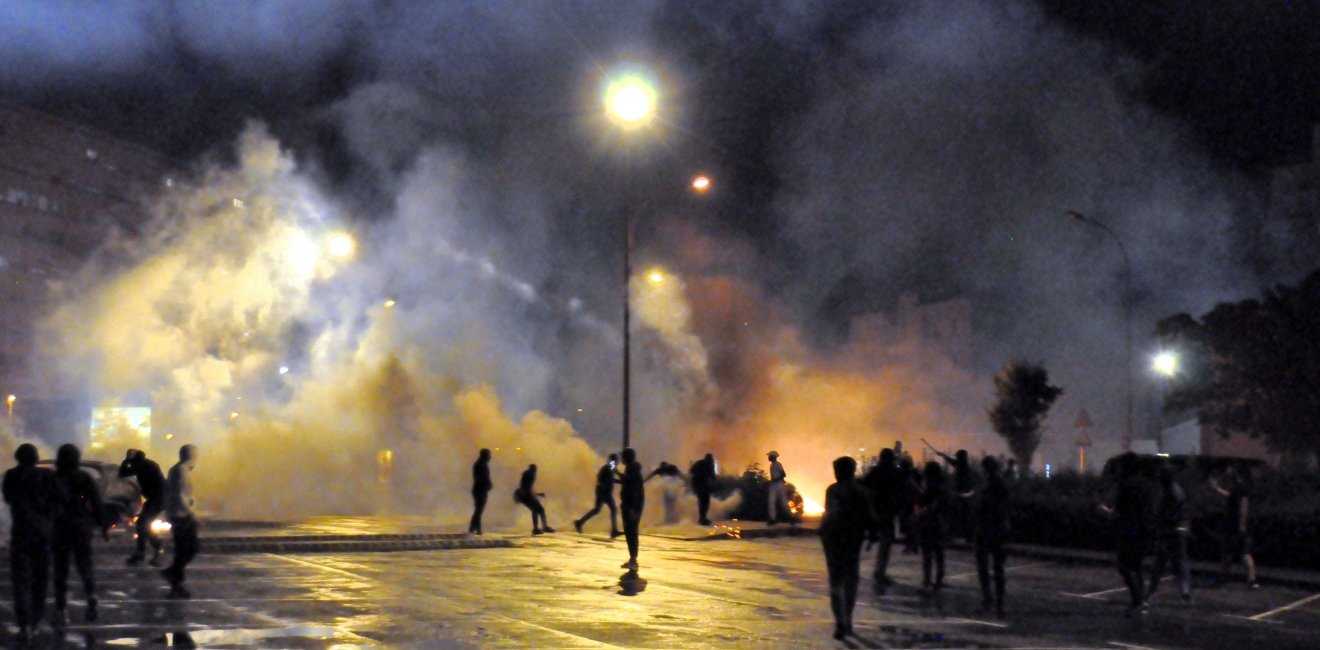More than a week after angry protests erupted in towns and cities across France in the wake of a fatal shooting by French police of a young male of North African descent, a measure of calm has finally been restored throughout the country following the deployment of more than 45,000 gendarmes and police officers. But with tensions still simmering in many communities, there are mounting fears that it is only a matter of time before deep fissures in French society ignite another outburst of violence that some commentators warn may evoke the specter of civil war.
President Emmanuel Macron reacted to the death of 17-year-old Nahel Marzouk, who was shot by a policeman at a traffic stop, by calling the shooting “inexplicable and inexcusable.” The policeman who fired into Marzouk’s vehicle as he sped away was detained pending an investigation of voluntary homicide. But Macron’s condemnation of the police action did little to alleviate the fury and frustration among the country’s black, Arab, and Muslim population, who have complained for years about racism and hostile discrimination by law enforcement.
Reaction to the killing quickly spread beyond the Paris suburbs to the rest of the country, as youthful protesters burned thousands of cars and hundreds of buildings, including town halls, police stations, and stores. But when mayors and other elected officials also became targets of violence, many French citizens rushed to defend the police and embraced calls to restore law and order. The far-right National Rally party led by Marine Le Pen, who hopes to succeed Macron after the 2027 presidential election, seized on the unrest to call for a tougher crackdown on violent protests and to place the blame on Macron’s government.
Macron has walked a fine line by trying to maintain social peace by reassuring black and Arab communities that justice will be served, while at the same time insisting that law enforcement authorities must be empowered to contain unrest. He has raised their budgets, permitted greater surveillance of mosques suspected of sheltering radical Islamists, and expanded the right to use lethal force by traffic police through a controversial 2017 law that his left-wing opponents claim amounts to a “license to kill.” But the police felt betrayed by Macron’s criticism of the recent shooting after being called upon repeatedly to defuse earlier street protests against the government and its reform policies.
Despite frequent complaints of racial bias, the French police still command widespread support for their role in responding to several terrorist attacks since 2015. Recent polls show more than 70 percent of the French people say they trust the police, though that view is not shared among black and Arab minorities or Macron’s leftist opponents. Le Pen hopes to expand her voter base by tapping into those sympathies, as she seeks to bring her far-right party into the political mainstream with the aspiration of becoming France’s next president. As in the United States and other Western democracies, France may now confront a new political agenda in which “law and order” issues may become a top priority in shaping future elections.
Author

Author "The Last President of Europe: Emmanuel Macron’s Race to Revive France and Save the World"

Global Europe Program
The Global Europe Program is focused on Europe’s capabilities, and how it engages on critical global issues. We investigate European approaches to critical global issues. We examine Europe’s relations with Russia and Eurasia, China and the Indo-Pacific, the Middle East and Africa. Our initiatives include “Ukraine in Europe”—an examination of what it will take to make Ukraine’s European future a reality. But we also examine the role of NATO, the European Union and the OSCE, Europe’s energy security, transatlantic trade disputes, and challenges to democracy. The Global Europe Program’s staff, scholars-in-residence, and Global Fellows participate in seminars, policy study groups, and international conferences to provide analytical recommendations to policy makers and the media. Read more





